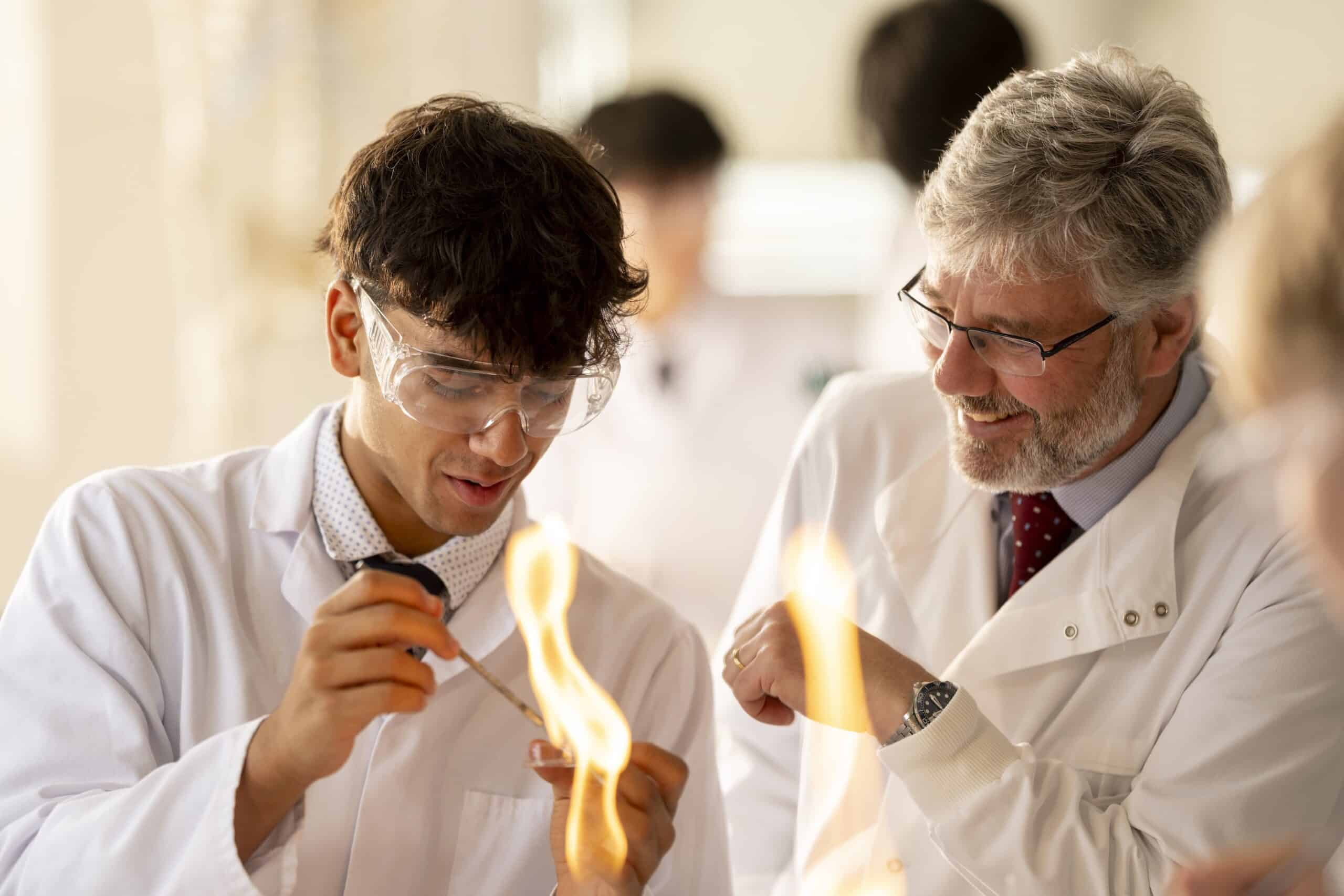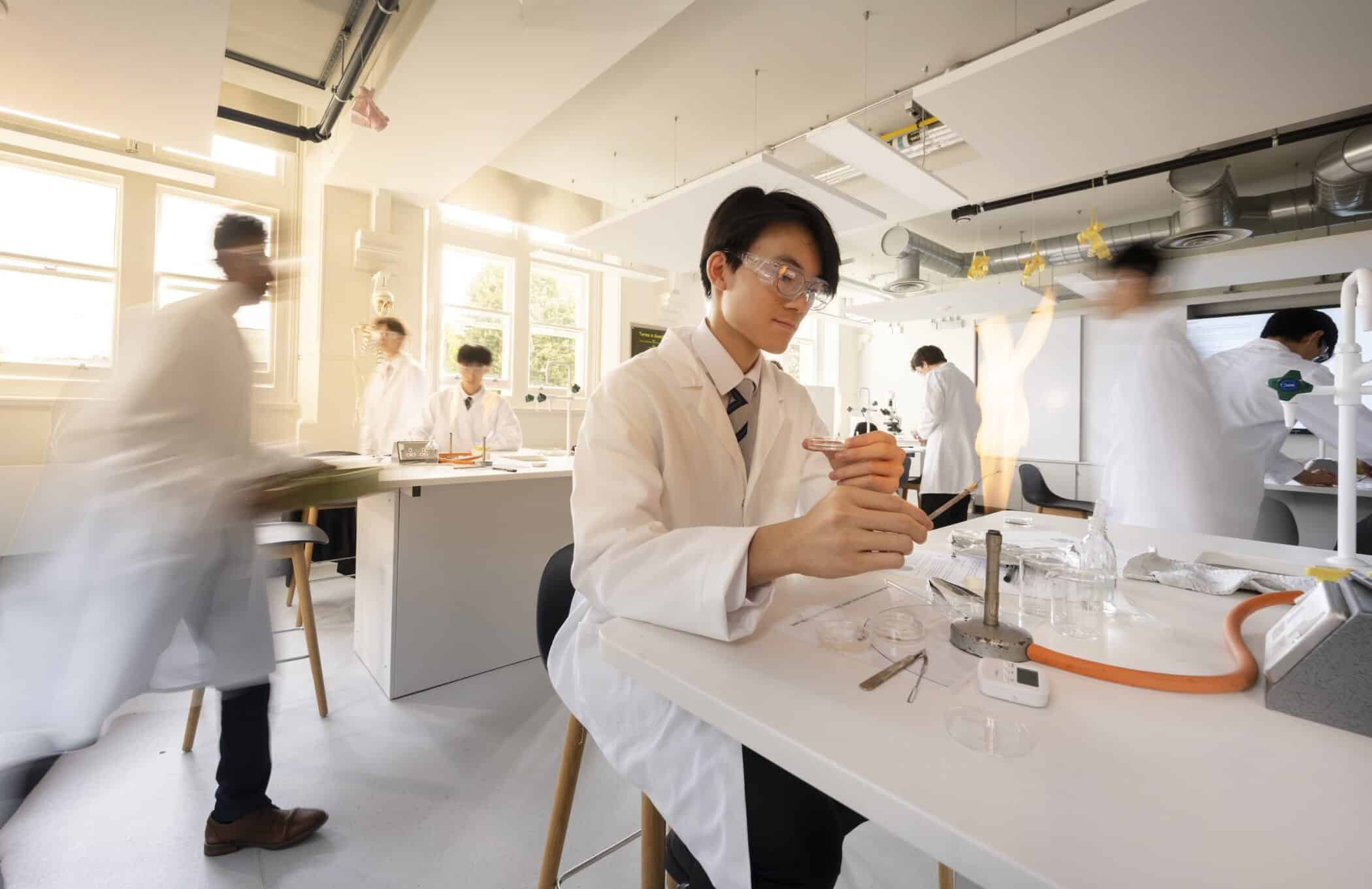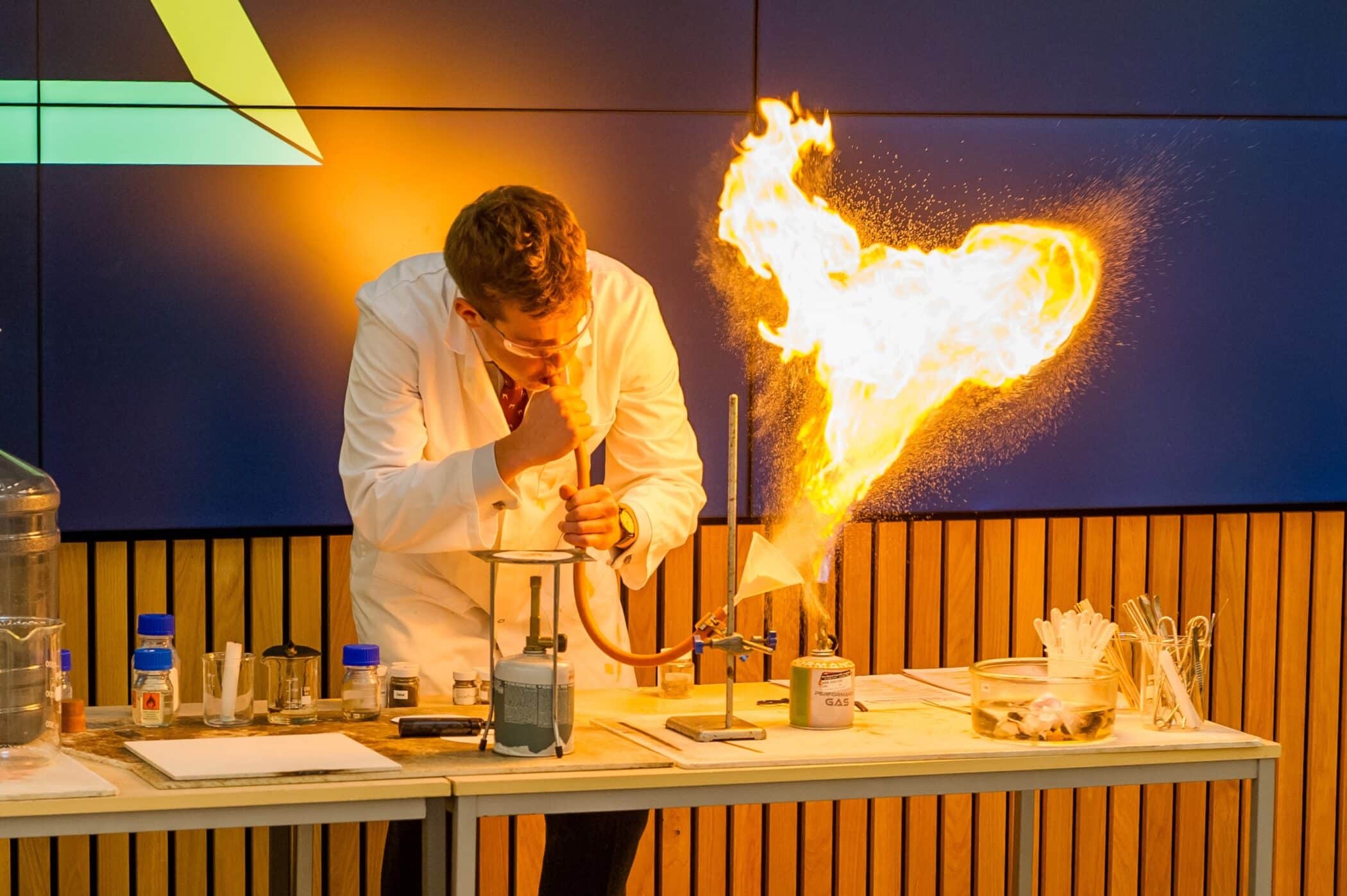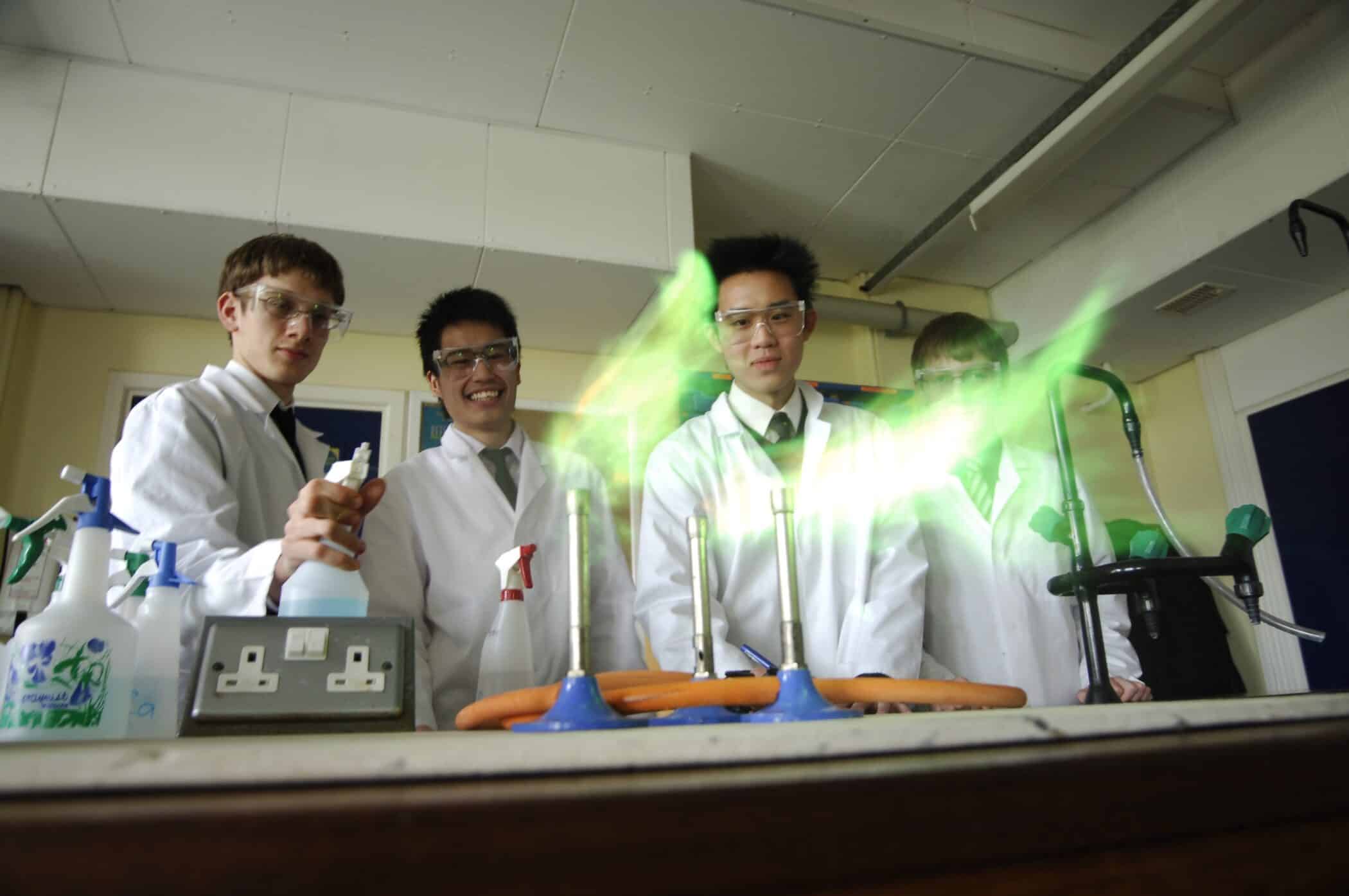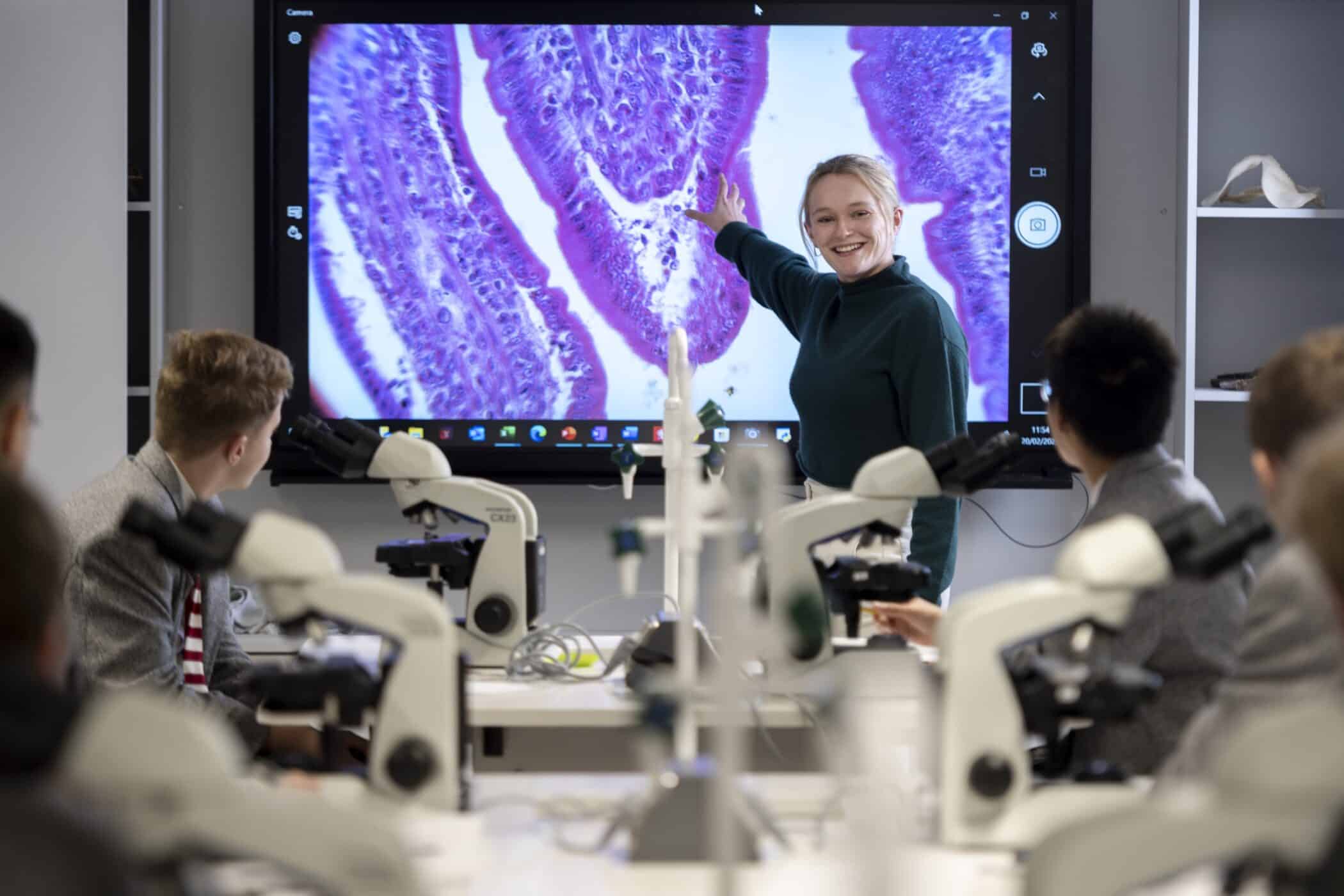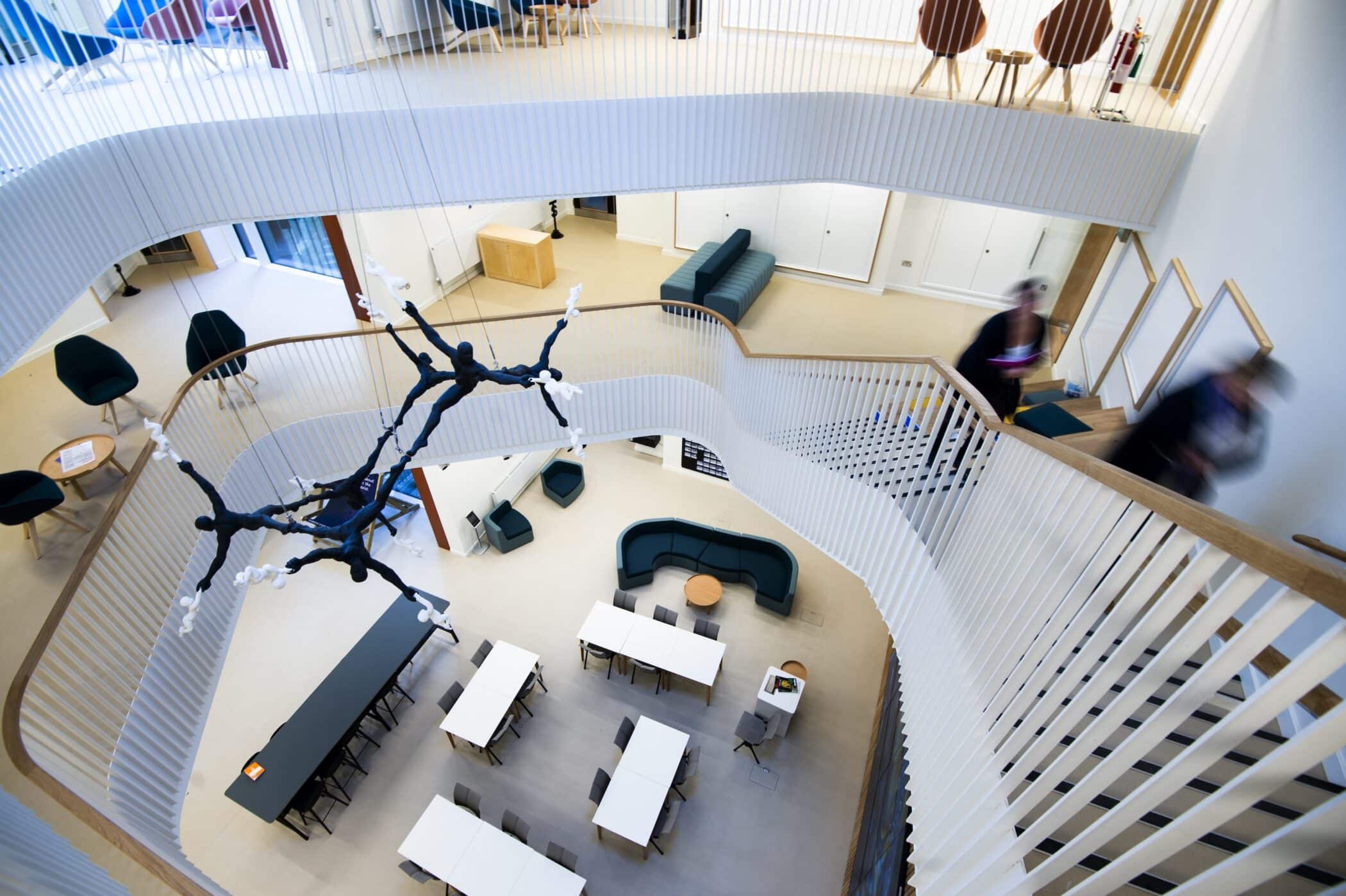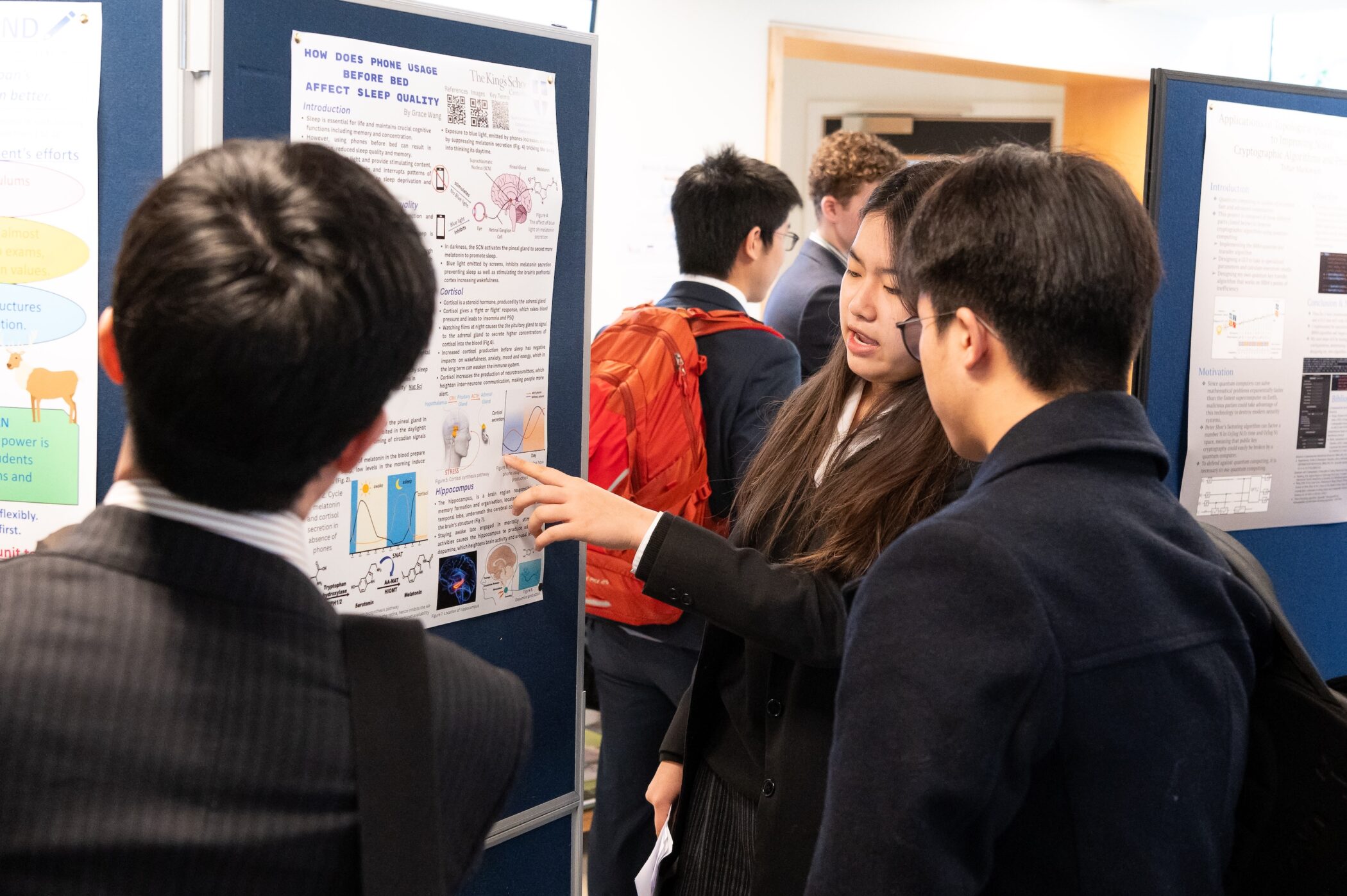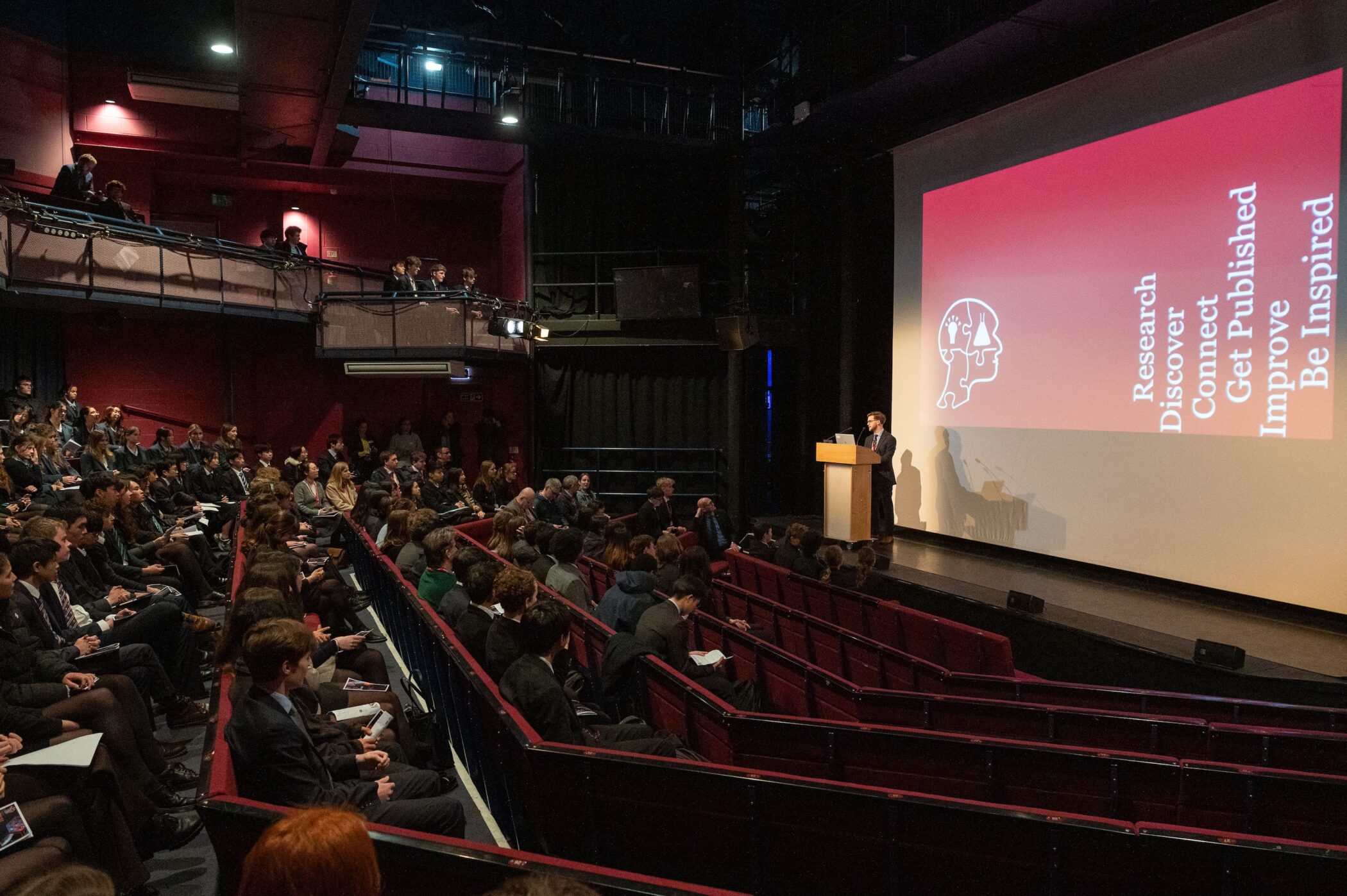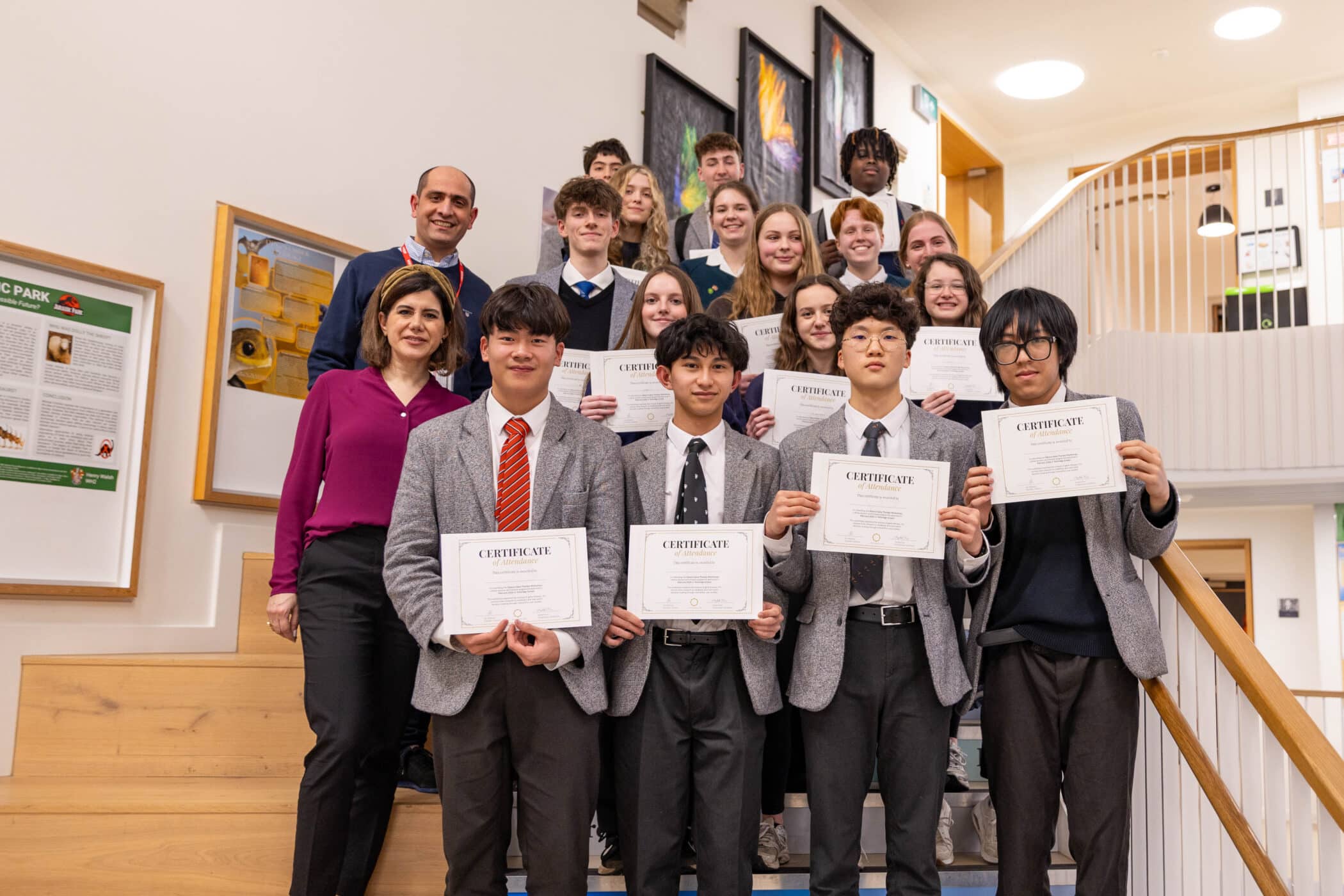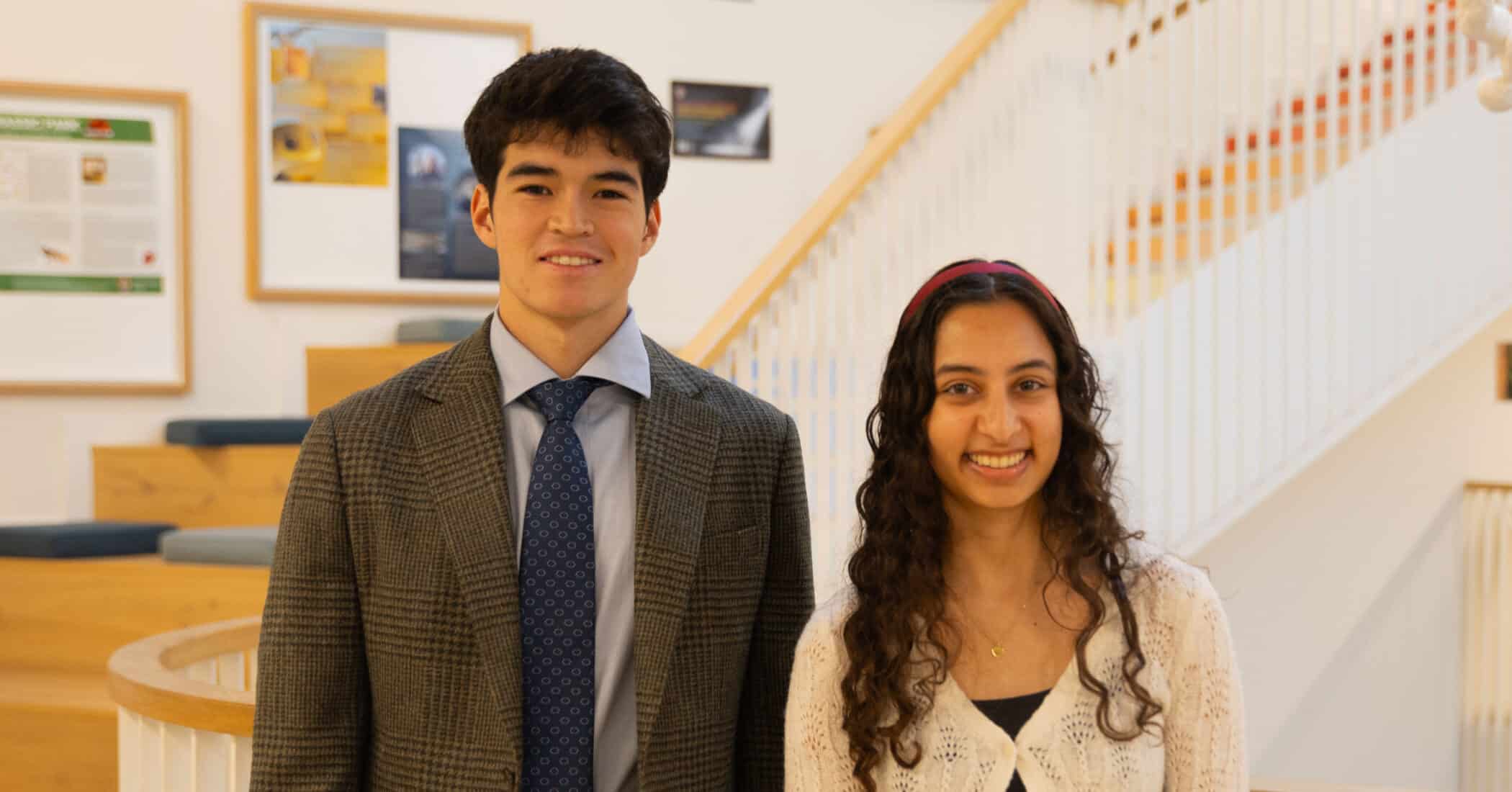In an era where technological advancements continue at pace and the stewardship of our planet becomes ever more paramount, the demand for a robust scientific education has never been more critical.
The Science Department at Tonbridge is committed to meeting this need in a manner that is not only practical, enjoyable, and intellectually stimulating but also fosters a genuine love for learning.
Our goal is to equip every boy with the skills required to navigate an increasingly technological society. Regardless of their A Level choices or future careers, we aim to foster an ability to appreciate, understand, and make informed decisions about pressing scientific, social, environmental, and ethical issues. More than an accumulation of facts, studying science is a transformative experience that shapes a distinct way of thinking. The mental discipline cultivated through scientific study is highly valued by employers across various industries, making A Level sciences a gateway to a diverse range of career opportunities.
Biology
Biology, as a subject, spans scales from molecular-level cellular biochemistry to the study of environmental systems. Breakthroughs occur at a rapid pace, hardly a week goes by without new discoveries gracing the headlines.
Tonbridge has produced a number of eminent biologists, including penicillin pioneer Norman Heatley, Neo-Darwinian thinker Bill Hamilton and psychiatrist William Rivers. It is the Department’s aim to inspire some Tonbridgians to ascend to similar heights, but to provide all with a solid grounding and appreciation for the living world around them, to equip them with the skills and knowledge to understand concepts from vaccination to climate change and to comprehend novel biotechnologies.
Engagement above and beyond the syllabus enables boys to follow personal passions and to mark themselves out from the herd of top-grade applicants in an increasingly competitive university applications landscape. Starting in the first year, boys are encouraged to take on extension tasks and to attend activities including dissection clubs, independent project groups, natural history trips and talks. Many attend, and eventually help run, the Medical Society with regular lectures from visiting speakers. Boys are encouraged to enter external competitions such as the British Biology Olympiad, with many winning coveted Gold Medals, and internal competitions for academic posters and photography as well as more conventional essays.
The legacy of Tonbridge scientists serves as a constant reminder of the potential within our students. As we nurture their curiosity and scientific inquiry, we aim not only for academic excellence but to instil in them the passion to contribute to the ever-evolving landscape of biology. Tonbridge’s biology programme is not just about grades; it’s about fostering a spirit of inquiry and inspiring the next generation of scientific trailblazers.
Chemistry
Steeped in a legacy that produced Nobel Prize winner Sir Derek Barton, the Chemistry Department at Tonbridge remains a thriving hub of scientific exploration. A substantial number of our graduates continue their scientific journeys at Oxbridge and other esteemed universities, and past results in public examinations are impressive (86% A*-A at A Level and 98% grade 9-7 at IGCSE.)
At the forefront is a commitment to hands-on experimental work, starting from basic mixture separation in the Novi (Year 9) to intricate organic syntheses in the Upper Sixth (Year 13). This practical emphasis is complemented by the use of cutting-edge ICT and captivating ‘wet’ demonstrations, ensuring that our pupils not only grasp the concepts but also leave with an enduring sense of wonder about the world around them. To further enrich their experiences, our students partake in trips to local universities and benefit from enlightening lectures by visiting experts, enhancing the expertise provided by our highly qualified teaching and technical team.
While our philosophy extends beyond exam results, we take pride in our pupils’ numerous achievements. A large proportion of Sixth Form pupils earn Gold awards each year in the prestigious Chemistry Olympiad, with equal success enjoyed in the Cambridge Chemistry Challenge for Lower Sixth. Our boys also excel in team-based challenges, ranking highly in the national “Chemistry Race”. We host the Royal Society of Chemistry Schools Analyst competition, where Tonbridge competes against local schools, and we run an exciting internal House Chemistry competition. Additionally, our annual fireworks talk continues to captivate students, providing further opportunities for engagement with the subject.
Physics
Physics is the comprehensive exploration of the natural world, seeking to unravel the behaviours of the universe—from the intricate sub-atomic quantum realm to the vast expanses of cosmological scales. At Tonbridge, our approach transcends the boundaries of any exam syllabus, urging students to think expansively and cultivating essential skills such as logical reasoning and adept problem-solving.
Our Physics Department is comprised of seasoned educators, many of whom bring rich experiences from academia and industry into the classroom. Backed by dedicated technicians and boasting one of the most well-equipped collections of physics apparatus in the country, we prioritise hands-on practical work as a cornerstone of our philosophy.
The Department takes pride in its remarkable track record at both GCSE and A Level. Between 2021 and 2024, 91% of A Level students achieved at least A or A* grades, with an impressive 97% securing grades 9-7 at IGCSE. Our prowess extends to Olympiad competitions, with Gold medals consistently earned in the top three years.
Beyond the curriculum, physics at Tonbridge thrives through a range of super curricular activities. Recent highlights include hosting workshops developed by the University of Cambridge, clinching victories in national rocketry competitions, securing triumph in the Weizmann safe-cracking competition, and welcoming regular speakers through the pupil-led Engineering Society.
The impact of these initiatives is evident in the popularity of physics as an A Level choice at Tonbridge. A significant number of our boys go on to pursue Physics, Natural Sciences, or Engineering at leading universities.
Head of Faculty (Science)



